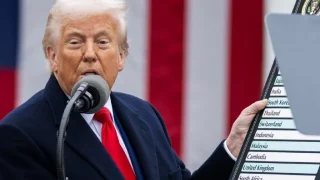
Pig farmers seeking to stop imports of pork into Australia are standing candidates in 15 Coalition-held seats. Their objective is to reverse Australia's World Trade Organisation (WTO) commitments. If the pig farmers succeed, primary producers in other countries will retaliate.
The global trading system is under constant threat from the failure of domestic adjustment to WTO agreements. Motor vehicle and textile, footwear and clothing industries in Australia have succeeded in stalling domestic tariff reforms. The pressures to backslide on trade agreements is also considerable in other WTO member countries. If backsliding becomes more prevalent, the benefits delivered by the WTO system will decline.
Australia has gained most from international agreements when the political process has persuaded the electorate, and those in the industries concerned, of the gains to be won from domestic adjustment. More than 80 per cent of our estimated gains from the Uruguay Round result directly from our own removal of trade barriers. The gains will be even greater if APEC countries meet their Bogor commitments for the reduction of protection.
Policies affecting trade flows do not begin or end in the international arena: Decisions about reducing protection must be implemented at home. Without increasing our competitiveness through improved technology, higher productivity and better marketing at home and abroad, in other words, through greatly improved management, we cannot benefit from the agreements that we have taken part in negotiating.
A new round of WTO, or any other multilateral or bilateral negotiations, will not mean much unless the need for greater competitiveness is faced squarely at home. It should also receive high priority in WTO trade surveillance and discussions leading up to the next Round if we want to see further reductions of international trade barriers.
Present WTO rules do not deal effectively with backsliding. Extending or tightening the rules will not succeed if the need for domestic adjustment by the industries affected is not taken seriously.
Ron Duncan is Professor of Economics and Executive Director of the National Centre for Development Studies at the Australian National University. This paper is based on a Briefing Paper entitled ‘Trade Policy and a Competitive Australian Economy’ published by the National Centre for Development Studies in June 1998.









